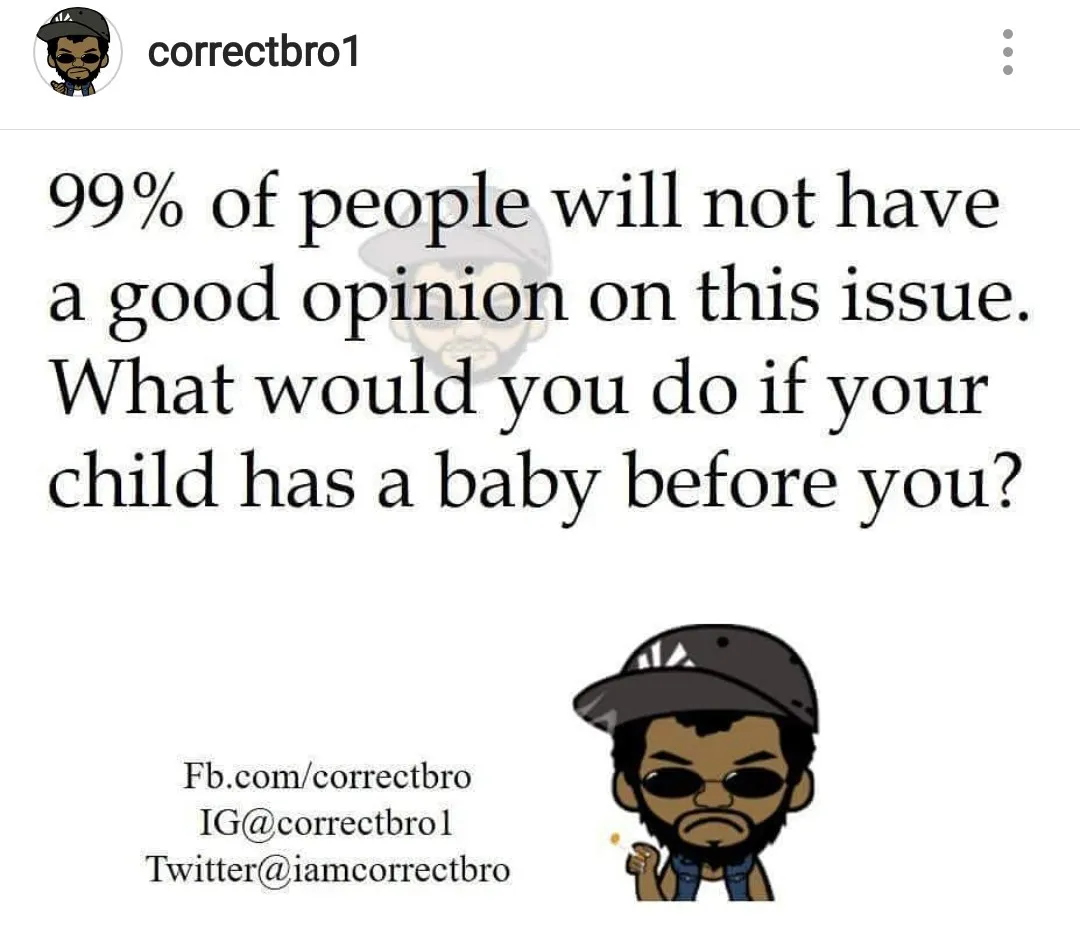Ambiguity is a situation in which something has more than one possible meaning and may therefore cause confusion - The Cambridge Dictionary
Ambiguity, or fallacy of ambiguity, is a word, phrase, or statement which contains more than one meaning. Ambiguous words or statements lead to vagueness and sometimes causes confusion, especially when the statement in question is not further elucidated.
Although ambiguity is considered a flaw in writing, many writers use this technique to allow readers to understand their works in a variety of ways, giving them depth and complexity. Words use in poems for instance are often ambiguous, opening the minds of the readers to perceive them in different lights. This often differentiate the understanding of such poems among people.

The Facebook user, CorrectBro once posted the picture above and just as he wrote in the picture, many people fell for the ambiguity in the statement.
What would you do if your child has a baby before you?
The word "before" in this sentence is ambiguous in that it could mean "your child having a baby before you have yours", but everyone knows that this is not possible. Else, how did the "Child" become yoyrs in the first place. The other meaning that this sentence could mean when rephrased is "What would you do if your child has a baby in front of you?"
Ambiguity is a way of hiding the truth when reporting a matter or when making a statement. Lawyers most especially know how to play around that. It is therefore important to think about statements made to be sure of the exact meaning before reporting them or acting on them. The context of usage could also be a guide in getting the real meaning of such a statement when used.